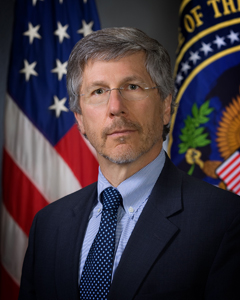Transparency, Public Service, and Foreign Intelligence: Thoughts on "Beyond Snowden"
This piece is part of a series on Tim Edgar's new book, "Beyond Snowden."
Published by The Lawfare Institute
in Cooperation With

This piece is part of a series on Tim Edgar's new book, "Beyond Snowden."
"Beyond Snowden," by my former colleague Tim Edgar (who, I should note, mentions me several times in ways that I, at least, view as favorable), can be looked at as comprising two related books. One is a narrative of Edgar’s seven years in government, in the Office of the Director of National Intelligence and at the White House. The other is an analysis of the framework of laws and policies governing U.S. surveillance for foreign intelligence purposes, with Edgar’s recommendations for changes to those laws and policies. Together, they make up an entertaining and readable book that helps further the discussion about how these essential powers should be used and constrained.
Rather than providing a comprehensive review of the book, I will share a few somewhat disconnected and possibly idiosyncratic thoughts I had while reading it. First, the book demonstrates the benefits of the increased transparency that intelligence agencies adopted after Snowden’s disclosures. Edgar’s policy analysis and recommendations rely extensively on documents and information that the government has publicly released. I strongly disagree with Edgar’s view that a pardon of Snowden would have been appropriate. I believe that Snowden’s disclosures, which were far more extensive than necessary to address issues of public concern, did great damage to our national security, and that he should face appropriate punishment. But it cannot be gainsaid that those disclosures were the trigger for a change in mindset among the leadership of the Intelligence Community. I hope that that the new mindset endures; properly implemented, and with appropriate protection for sensitive sources and methods, transparency is essential to restore public understanding of, and hence public support for, the vital activities of the intelligence community. Edgar’s book is a useful contribution to that understanding.
The book also demonstrates the value of government service. Edgar’s recommendations are entitled to serious consideration in part because they are informed by actual experience with the relevant programs and an understanding of the competing equities that simply cannot be obtained from outside. By the same token, as I observed firsthand while at ODNI, the government benefited from Edgar’s perspective as a former ACLU lawyer, even if his views were not always adopted. The so-called “revolving door” of talented individuals in and out of government is often criticized, but it brings significant benefits, both for government and for public discourse.
The book also illustrates the power of language to influence policy debates, often in ways that obscure rather than illuminate. Terms such as “mass surveillance,” “spying on Americans,” and “America’s growing surveillance state” suggest comparisons to the Stasi or Gestapo that are far from justified by the facts, but they have a potent rhetorical impact that overwhelms more accurate and measured descriptions such as “targeted collection of a large volume of communications of valid foreign intelligence targets,” “incidental collection of communications of Americans who are not the targets of surveillance and whose communications may never be examined,” or “surveillance for foreign intelligence purposes conducted pursuant to lawful authority and with extensive oversight.” To his credit, Edgar generally explains what he means – distinguishing, for example, between “mass” collection and “bulk” collection – but his use of these loaded shorthand terms nonetheless impedes careful analysis rather than furthering it. The job of our intelligence agencies is not to seek information about Americans, for political or other inappropriate purposes, and rhetoric suggesting otherwise simply feeds public misconceptions in a manner better suited to Hollywood than serious discussion.
Finally, while many of Edgar’s recommendations are excellent, I disagree with him on one significant point. Edgar finds it problematic that our Fourth Amendment provides little or no protection to foreigners (at least when they are outside the United States). Among Edgar’s recommendations, therefore, are that NSA’s overseas collection should be brought under the Foreign Intelligence Surveillance Act and that our laws should provide explicit protection for foreigners. These changes are neither feasible nor justified.
Politically, they are impossible. Even before the current “Make America Great Again” era, there was no Congressional appetite for so vastly increasing the power of the courts to control foreign intelligence collection overseas, which has always been viewed as a core executive responsibility. And they are not practical either, given the wide range of foreign intelligence collection activities. To pick just one example, are we really going to require judicial supervision of intelligence activities in support of American troops fighting in foreign countries? It is fair to point out, as Edgar does, that more congressional oversight of these activities may be warranted, although congressional oversight of intelligence is currently far too focused on partisan advantage at the expense of the national interest. But imposing greater statutory restrictions on this type of foreign intelligence collection would significantly constrain intelligence agencies’ ability to protect the nation.
Providing extensive legal rights to foreigners outside the United States is also not justified. Virtually every nation on earth distinguishes between citizens or residents and persons with less connection to the nation. Moreover, as Edgar notes, President Obama, in his Presidential Policy Directive 28 (PPD-28) on signals intelligence, directed intelligence agencies to respect the rights of foreigners, and in particular to establish rules for the retention and dissemination of personal information about foreigners collected through signals intelligence that mirror the rules applied to personal information about Americans.
To date, the Trump Administration has given no indication that it intends to retreat from PPD-28. This may be a recognition of the importance of PPD-28 to the Privacy Shield arrangement with the European Union, which permits the transfer of data between the EU and the US and is critical to global commerce. It may also reflect the fact that PPD-28 largely memorialized prior practice in the Intelligence Community. It stands as a testament to America’s devotion to principles of privacy and the rule of law, and it strikes the appropriate balance between effective intelligence gathering to protect national security and protecting the rights of individuals around the world.



-(1)-(1).png?sfvrsn=1bc11cd_4)
_-_flickr_-_the_central_intelligence_agency_(2).jpeg?sfvrsn=c1fa09a8_5)
